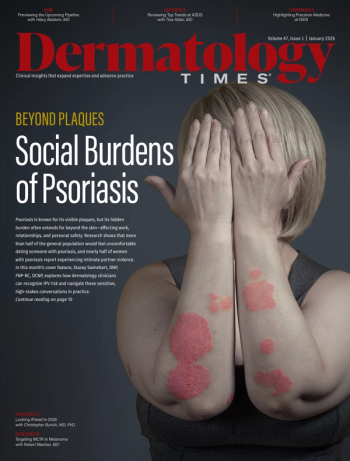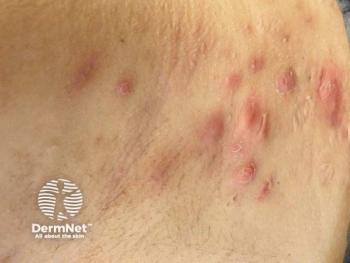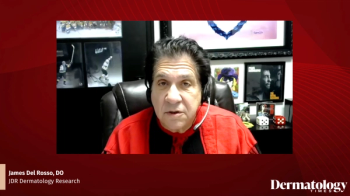
- Dermatology Times, April 2024 (Vol. 45. No. 04)
- Volume 45
- Issue 04
Meet the Spring Editor in Chief: Aaron Farberg, MD
Dermatology Times is pleased to introduce our Spring Editor in Chief, Aaron Farberg, MD, with a snapshot of his involvement in the dermatology space.
Dermatology Times is thrilled to welcome Aaron Farberg, MD, double board-certified dermatologist, Mohs surgeon, and chief medical officer at Bare Dermatology in Dallas, Texas, to share his expertise, treatment pearls, and involvement outside of his practice this season. He joined the Dermatology Times Editorial Advisory Board in March 2023. In addition to treating patients, Farberg has been a clinical investigator for numerous FDA clinical trials, has published over 100 articles in medical journals, and founded the Dermatology Science and Research Foundation to provide dermatology education to his patients and peers. And a fun fact as baseball season begins—before moving to Dallas, he was a consultant dermatologist for the New York Yankees. Here is a snapshot of his involvement in the dermatology space.
Farberg serves as the deputy chair of the Dermatology Carrier Advisory Committee (DermCAC). The DermCAC provides direction and guidance to Medicare contractors, such as Noridian, Novitas, and Palmetto, which control what does or does not get covered by Medicare. “I am fortunate to build connections with the decision makers for our Medicare beneficiaries,” he said. “The DermCAC is a great way to support the field of dermatology and your colleagues.”
SkinPAC
The American Academy of Dermatology (AAD) welcomes its members to join SkinPAC, and Farberg is a proud board member. SkinPAC focuses on state and federal legislation and regulations that advance patient-centric models of care, promote access to dermatologic care in underserved communities, and position dermatologists as the owners of dermatological data and technology. At this time, a top priority of SkinPAC is Medicare payment reform to establish a positive annual inflation adjustment, replace or eliminate budget neutrality requirements to the physician fee schedule, and reform the Quality Payment Program to increase physician input and improve patient care without overly burdensome documentation and compliance activity.
AAD Clinical Guidelines Committee
Farberg also serves as a member of the AAD Clinical Guidelines Committee, which oversees the rigorous review and grading of relevant scientific literature, gathers input from an expert volunteer physician work group, and ensures a multilayer peer review approval process to publish guidelines to treat and manage a variety of dermatologic conditions. Guideline topics and updates are chosen depending on several factors including public health importance, availability of interventions, and what would be helpful for the specialty. There are AAD guidelines currently available for acne, actinic keratosis, atopic dermatitis, basal cell carcinoma, cutaneous squamous cell carcinoma, melanoma, office-based surgery, psoriasis, and reconstruction after skin cancer resection.
Social Media Showcase
On LinkedIn, Farberg highlights priceless moments and strategic moves he and his colleagues make to deliver white glove service to patients.
Articles in this issue
over 1 year ago
Discovering Dermatology Times: April 2024almost 2 years ago
A Novel Approach to Distinguishing Scabies From Atopic Dermatitisalmost 2 years ago
New AAD Atopic Dermatitis Guidelines and Dupilumab Label Updatesalmost 2 years ago
My Colleague Has Defamed Me Online: What Can I Do?almost 2 years ago
Neurocosmetics: Sensates and Smells on the Skinalmost 2 years ago
Springing Into the Latest Research in Dermatologyalmost 2 years ago
What’s New in Hair Loss Therapies and Exosomes?almost 2 years ago
Advances in Itch: Brian S. Kim, MD, Shares Insights and Treatment TipsNewsletter
Like what you’re reading? Subscribe to Dermatology Times for weekly updates on therapies, innovations, and real-world practice tips.










